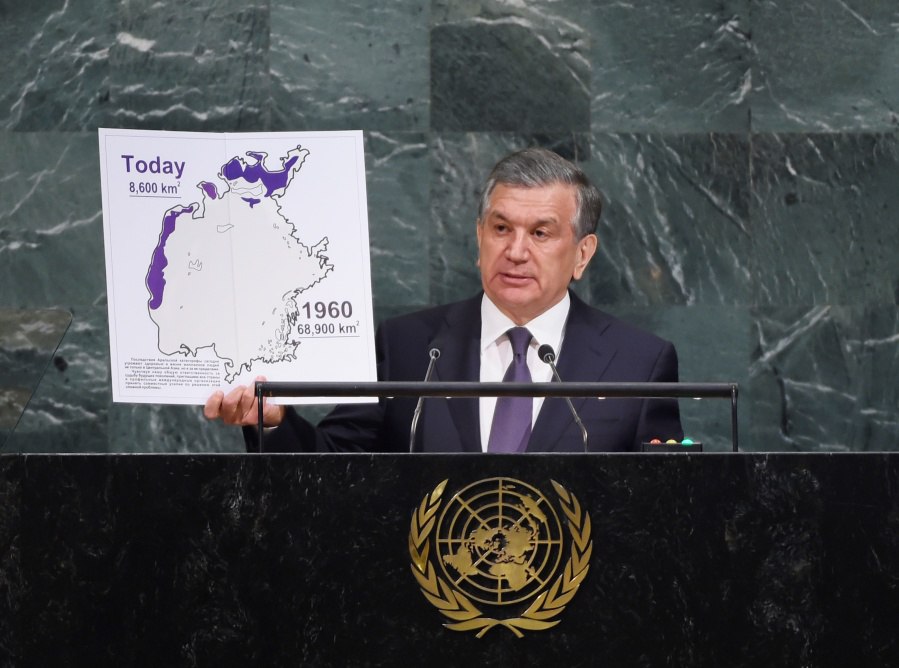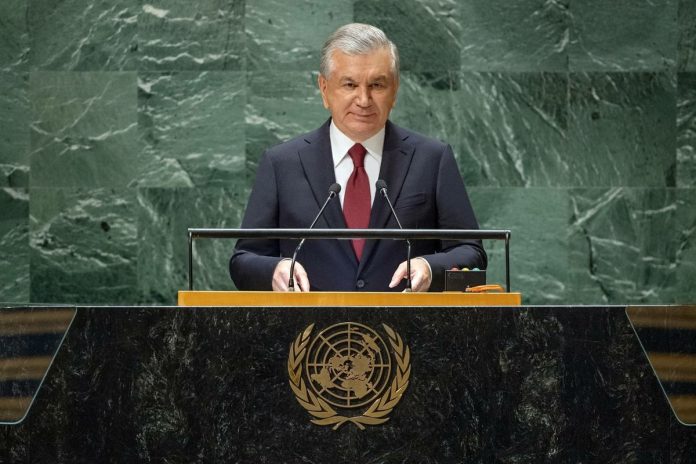The UN General Assembly unanimously adopted the resolution initiated by Uzbekistan “Central Asia in the face of environmental challenges: strengthening regional solidarity for the sake of sustainable development and prosperity”.
The intergovernmental negotiation process to develop and agree on the text of the resolution took place over two months, namely in October-November at the UN headquarters in New York. Experts from countries from all continents of the world, including the USA, Russia, China, France, Great Britain, Germany, Canada, Australia, Saudi Arabia, Egypt, Argentina, Brazil, Mexico and others, actively participated in the consultations. As a result, representatives of more than 100 countries made numerous proposals to fill the text with specific content and achieve universal consensus.

The text specifically mentions a number of initiatives of the President of Uzbekistan, including the “Green Agenda for Central Asia” and its role in promoting sustainable development in the region. In the resolution, member states welcome the initiative of Uzbekistan to hold the International Climate Forum in Samarkand in 2024. Particular attention is paid to efforts to mitigate the consequences of the drying up of the Aral Sea, with special emphasis on the activities of the UN Multi-Partner Trust Fund for Human Security for the Aral Sea region, created on the initiative of the head of Uzbekistan. An appeal was made to the international community to continue to support this fund. The document notes the importance of introducing innovative methods and new technologies in the fight against desertification and land degradation. Contains greetings to the successful holding for the first time in Central Asia of the 21st session of the Committee to Review the Implementation of the UN Convention to Combat Desertification and a high-level meeting on combating sand and dust storms on November 13-17 in Samarkand.
The resolution contains specific tasks to effectively counter climate and environmental threats in Central Asia, including through the development of sustainable agriculture, landscaping, rational use of water resources, energy efficiency, waste recycling, development of sustainable tourism, creation of “smart cities” and sustainable transport.
The General Assembly recommended that the UN system, international and financial institutions, the private sector, investors and donors continue to mobilize resources, build capacity and provide assistance to address environmental problems in Central Asia.
The resolution also sets out the initiatives of Kazakhstan, Kyrgyzstan, Tajikistan and Turkmenistan in the field of environmental protection.
The document was presented on behalf of all Central Asian countries. The co-sponsors of the resolution also included countries such as Germany, Switzerland, Turkey, China, Singapore, Hungary, Vietnam, Azerbaijan, Armenia, Malaysia, Indonesia, Egypt, Jordan, Paraguay (covering representatives of all UN regional groups).
Following the adoption of the resolution, the UN News Service published an article entitled “The UN General Assembly adopted a resolution to combat environmental problems in Central Asia.” It notes that climate change is one of the most complex problems of our time and creates serious difficulties for the sustainable development of all countries. As stated in the publication, speaking at the UN in September, President Shavkat Mirziyoyev noted that over the past thirty years the air temperature in the region has increased by one and a half degrees. “This is twice the global average warming,” the portal quotes the head of Uzbekistan. “As a result, about a third of the total area of glaciers has disappeared.” The article also quotes the words of President Shavkat Mirziyoyev that if this trend continues, then in the next twenty years the flow of two large rivers in the region – the Amu Darya and the Syrdarya – may decrease by 15 percent. “Per capita water availability is expected to decline by 25 percent and crop yields by 40 percent,” he added at the time, calling on the international community to take action.

















